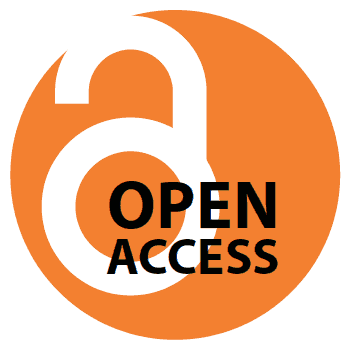During the month of Open Access week (October 19-25) we will be highlighting a number of guest posts from University of Iowa Faculty and Staff who have personal experience with Open Access. We appreciate their contributions.
The seventh, and final post, is by Kelly Cole, Associate Professor and Departmental Executive Officer, College of Liberal Arts and Sciences, Department of Health and Human Physiology.
Open Access Publication Just Makes Sense
According to the PLOS organization, “Open Access ..stands for unrestricted access and unrestricted reuse” of peer-reviewed original scholarly work (emphasis added). I’m tempted to stop right there. Unrestricted access and unrestricted reuse of our discoveries that mostly were supported by public funds and hence deserve to be in the public’s hands rapidly (and the NIH agrees). With digital access worldwide assured by the world-wide-web, we assure the second of the two basic tenets of modern science – dissemination (the first being discovery). What else is left to debate?
This is the simple, honest motivation for me to publish in Open Access journals – rapid, worldwide dissemination. The profit-driven and slightly unsavory alternative has been well-discussed from the very first thoughts about the possibility of open access publishing; namely print publishers (in paper or digital format) who own the rights to the published articles, then charge fees for digital access, and who then require permission for reuse at a fee (they own copyright). (We’ve all been through the copyright torture when we attempt to write a chapter in a book using figures from our published work.) Clearly, these are the expected policies of a for-profit, bottom-line enterprise, and a partnership with scholars that worked to the advantage of both parties. I accepted that early in my career. The model worked in its own perverse way, and it was the only game in town for world-wide dissemination, not to mention its role in career advancement through peer-review and the need to publish in high-impact journals for maximum gain.
The burgeoning success of Open Access publication, along with digital media and the world-wide-web, clearly shows that it is time to move on. The remaining barriers to each individual scholar for deciding whether or not to publish in Open Access seem to be rooted in decisions about career advancement; that is, the need to publish in elite, supposedly high-impact journals. Last year Prof. Bernd Fritzch wrote a wonderful entry to this blog site concerning the eroding utility of journal impact factors, and the ongoing evolution of newer ways of tracking citation impact of a scientist’s work (such as the h-index and others). It would seem that with digital access (and digital searching), amplified further by open access, the impact of a paper is now less a matter of where it was published, and more a matter of the content of the paper (as it should).
I too remember long days in the library with Index Medicus, tracking down papers, which then evolved into Current Contents mailed to your lab periodically. We didn’t have time to scour every possible key word or topic heading (remember, we were turning pages in a catalog and we couldn’t use arbitrary key words and the magic of Boolean operators). We focused first on the keywords and terms that made the most sense (and were always amazed when someone turned up an important paper that escaped our search), and then on a subset of high-impact journals. Many of these journals were high impact because of the shared, tacit agreement amongst our peers to publish our best work in just the places where we all tended to look first.
Folks, those days are over. With digital search across large, publicly supported databases, our work can be found just about anywhere, barring our poor choices of titles or keywords. That means your work will be found in Open Access journals, and it will be cited based on the merits of your scholarship and not just the reputation of the journal. This scenario continues to evolve, but the direction seems clear and we’re building speed. Prof. Fritzsch asked the question “Are we witnessing a revolution in information flow…?” I’m wondering if Bernd asked the question as a rhetorical device. It seems to me the answer is a resounding ‘Yes’!

Agreed and well said–though think there is room for both venues–open and pay-for-subscribe. Am absolutely sure that all of us have to contribute more to make this new information flow as well respected as the “old flow” via critically reviewing papers and insisting that work with limited internal validity not go out under any venue.